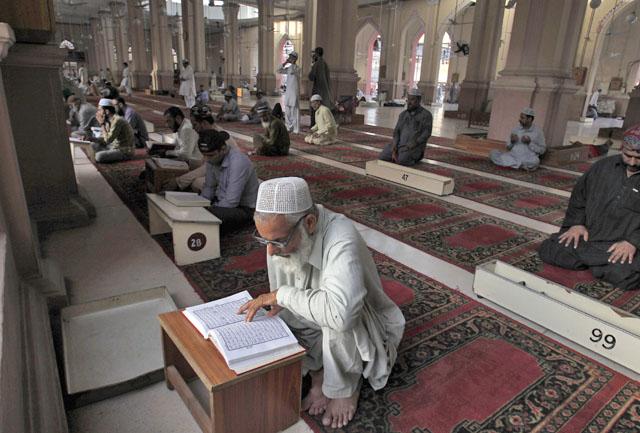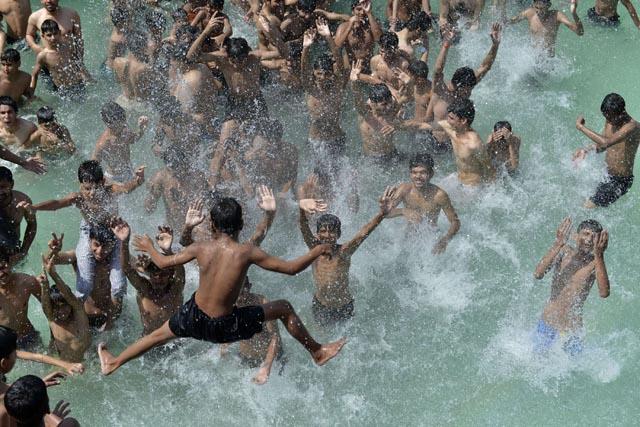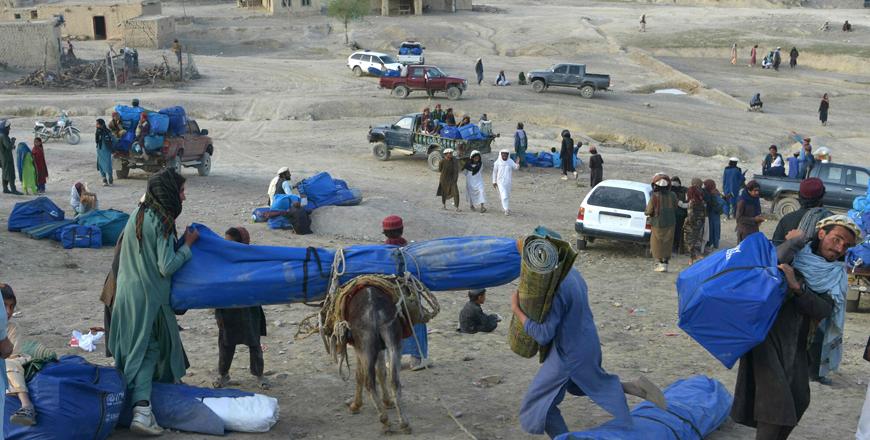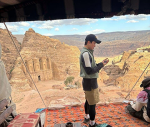You are here
Taliban cut hair and beards to flee Pakistan army assault
By AFP - Jul 06,2014 - Last updated at Jul 06,2014
BANNU, Pakistan — Hundreds of Taliban fighters rushed to disguise themselves with new haircuts in the weeks before a Pakistani army assault, it has emerged, as refugees revealed details of life under the militants — and their taste for imported luxuries.
Azam Khan was one of the top barbers in Miranshah — the main town of North Waziristan — until he, like nearly half-a-million others, fled the long-awaited offensive unleashed by the Pakistan military on the tribal area in June.
He told AFP his business boomed in the month leading up to the army assault as the militants sought to shed their distinctive long-haired, bearded look.
“I have trimmed the hair and beards of more than 700 local and Uzbek militants ahead of the security forces’ operation,” he said while cutting hair in a shop in Bannu, the town where most civilians fled.
For years he cut Taliban commanders’ hair to match the flowing locks of former Tehreek-e-Taliban Pakistan (TTP) leader Hakimullah Mehsud, killed by a US drone last November, but in May a change in style was called for.
“The same leaders came asking for trimming their beards and hair very short, saying that they were going to the Gulf and wanted to avoid problems at Pakistani airports,” Khan said.
Even Uzbeks and Tajiks with little knowledge of the local language came to him, he said.
“Knowing little Pashto, they used to utter four words: ‘mulgari [friend], machine, zero, Islamabad’,” said Khan — asking him to shave their beards to nothing so they could go to Islamabad.
French perfume
The Pakistani military launched the offensive against militants in North Waziristan tribal area on June 15, vowing to wipe out the strongholds they have used to wreak countless deadly terror attacks across the nuclear-armed state.
The rugged, mountainous area on the Afghan border has been a hideout for years for Islamist militants of all stripes — including Al Qaeda and the homegrown TTP as well as foreign fighters including Uzbeks and Uighurs.
For years people from North Waziristan remained tight-lipped about life in a Taliban fiefdom, scared of being kidnapped or even beheaded if they shared information about the militants.
But as the exodus of people has grown, some have found the confidence to tell their stories.
While the militants bombed and maimed thousands in their fight to install an austere Sharia regime in Pakistan and publicly professed contempt for the West, in North Waziristan they indulged themselves with fancy imported goods.
Hikmatullah Khan, a shopkeeper in Miranshah, said that at the same time as commanders were insisting he pay 300 rupees ($3) a month “tax”, their fighters were stocking up on grooming products.
“They were very keen to buy foreign-branded shampoos, soaps and perfumed sprays,” Khan told AFP.
“They had a lot of eagerness for French and Turkish perfumes, body sprays and soaps.”
Muhammad Zarif, a wholesale merchant in Datta Khel, near Miranshah, said fighters would buy large quantities of British detergent and American cooking oil, much of it smuggled from Dubai.
Militants gone?
Pakistan’s allies, particularly the United States, have long called for an operation to flush out groups like the Haqqani network, which use the area to target NATO troops in neighbouring Afghanistan and are thought to have links to Pakistani intelligence services.
The Pakistani military has said it will target militants “of all hue and colour” but the scant resistance troops have encountered has led many to believe the insurgents fled before the offensive, limiting its effectiveness.
The army says the operation has killed nearly 400 militants and will rid North Waziristan of their bases, denying them the space to plan attacks and allowing investment to come to one of Pakistan’s poorest areas.
But it remains to be seen what the long-term impact of the offensive will be. Local intelligence and militant sources told AFP that up to 80 per cent of fighters fled after rumours of an army assault emerged in early May, most over the porous border into Afghanistan.
These sources estimate the present number of militants as around 2,000, down from around 10,000 before the operation. The figures are uncertain and difficult to confirm.
The Pakistani army has asked Afghanistan to crack down on TTP refuges across the border and this week top brass from both sides met in Islamabad to discuss the issue.
“It is clear that militants were aware that the offensive was coming before it started. Lots of them fled,” a Western diplomat told AFP.
“The big question is: after the offensive, will Pakistan allow the Haqqanis and others to come back?”
Related Articles
Pakistan’s military launched a ground assault in the North Waziristan tribal area on Monday, beginning a new phase in its offensive against Taliban militants, after nearly half-a-million civilians fled the fighting.
Pakistan Prime Minister Nawaz Sharif said Monday an ongoing military offensive against the Taliban will usher in peace as militants vowed revenge and warned foreign firms to leave the country.
SPERA DISTRICT, Afghanistan — When Gul Nayeb Khan tried to claim a parcel of aid for earthquake victims being handed out in eastern Afghanis


















